If education freedom were a hockey game, Florida just scored a Texas hat trick.
For the fourth consecutive year, Florida was ranked the No. 1 state for education freedom for K-12 students and families in The Heritage Foundation’s annual Education Freedom Report Card. The 2025 Heritage rankings come after a landmark year of state legislative sessions that delivered wins for students and families.
Florida leaders credited the state’s ranking to policies that give parents control over their children’s education dollars, offering a plethora of choices, including a la carte courses provided by school districts and charter schools.

Florida Gov. Ron DeSantis signs HB 1, which offered families universal eligibility to Florida education choice scholarship programs.
“In Florida, we are committed to ensuring parents have the power to make the education decisions that are best for their child,” said Gov. Ron DeSantis, who in 2023 signed legislation that offered universal eligibility for K-12 state education choice scholarship programs that allow families to direct their dollars toward the best options for their children. “Florida offers a robust array of educational choices, which has solidified our state as a national leader in education freedom, parental power, and overall K-12 education.”
Commissioner of Education Anastasios Kamoutsas said earning the top ranking for four years affirms the state’s long-term commitment to families.
“Under Governor DeSantis’ leadership, Florida will continue honoring parents’ right to choose the best educational option for their child’s individualized needs. I am proud that Florida offers so many educational options that parents can have confidence in.”
Since the Education Freedom Report Card began in 2022, Florida has earned the top ranking every year. The report card uses five categories: school choice, transparency, regulatory freedom, civic education, and spending to rank states.
In addition to Florida receiving the overall top spot for Education Freedom, it also earned high rankings in the following categories:
Earlier this year, the Sunshine State also earned national recognition for putting dollars behind its policies. In January, the national advocacy group EdChoice put Florida first on its list of each state’s spending on education choice programs proportional to total education spending.
 According to the EdChoice report, Florida became the first state to spend more than 10% of its combined private choice and public-school expenditures on its choice programs, rising from an 8% spending share in 2024.
According to the EdChoice report, Florida became the first state to spend more than 10% of its combined private choice and public-school expenditures on its choice programs, rising from an 8% spending share in 2024.
Florida also reached a historic milestone when, for the first time, more than half of all K-12 students were enrolled in an educational choice option. During the 2023–24 school year, 1,794,697 students, out of the state’s approximately 3.5 million K-12 population, used a learning option other than their assigned district school.
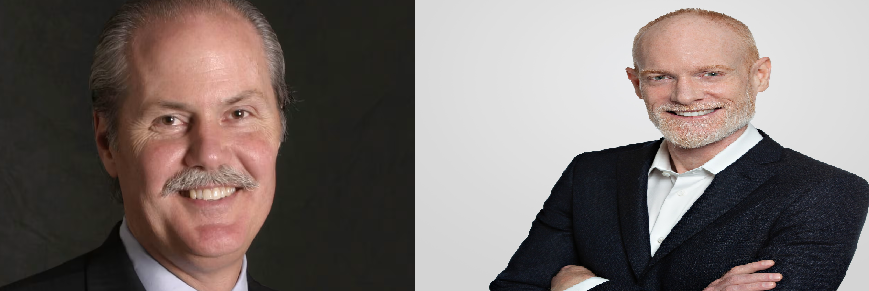
School choice champions Chip Mellor, left, and Caleb Offley, each died last week.
Sad news this week: Two great warriors for education choice, Institute for Justice co-founder Chip Mellor and the Walton Family Foundation’s Caleb Offley, died on the same day. The Wall Street Journal wrote a memorial for Mellor here which reads in part:
Many young lawyers hope for careers in which they can use the law to promote justice and change lives, but few succeed. One who did was William “Chip” Mellor, who died Friday at 73 years old.
Myles Mendoza and Jason Gaulden wrote tribute to Offley, which read in part:
Caleb made a significant and lasting contribution to the field of education philanthropy, and his impact will continue to shape the lives of the many leaders he supported for years to come.
His approach was always selfless and humble. He worked quietly behind the scenes. Caleb never sought the spotlight. Instead, he was deeply committed to elevating others, believing that real leaders don’t care about followers; real leaders care about developing other leaders. That’s exactly what Caleb did throughout his life.
If there were a School Choice Valhalla presided over by Milton Friedman, Valkyries would be depositing Chip and Caleb into the hallowed halls for a rip-roaring celebration and feast. Well done gentlemen- may your memories be a blessing for us to treasure and your lives examples for us to follow.

Norse mythology included the concept of Valhalla. Valkyries flew down to earthly battlefields on winged horses to transport the worthy fallen to that Asgardian great hall of the honored dead. If there were a school choice version of Valhalla, the newly arrived fallen heroes would expect to see many greater thinkers and leaders. You may not have expected to find yourself drinking mead in the afterlife with the likes of John Stuart Mill and Daniel Patrick Moynihan and a great many in-between, but it turns out that death is full of surprises!
In this reimagining of Valhalla, the clear-eyed Milton Friedman replaces the one-eyed Odin in presiding over the hall of heroes. Friedman, whose birthday was July 31, 1912, died in 2006. If he were observing our current efforts from a school choice Valhalla, what would he make of us? Just how many Valkyries would he be sending down over the next couple of decades? A recent piece from Ann Marie Miller of EdChoice provides an answer that rings true:
As we celebrate this milestone and we set our sights on reaching 2 million children, Milton would argue that we’re just getting started and that we need to kick it up a notch.
“I think the headline is very simple: It’s progress but not fast or good enough,” said Robert Enlow, President and CEO of EdChoice. “Milton said that to me 1,000 times. He would say, ‘It’s good progress, but it’s not good enough. Not fast enough, not good enough. We need to go further, farther, faster in order to improve the quality of education and our society.”
“We have a society that can’t read, a society that doesn’t understand history, a society that can fall apart if it’s not capable of holding its citizenry together through democracy’s work. You have to be educated to be democratic. So, we need to improve the quality of education in order to improve our society”, added Enlow.
Milton Friedman was a happy warrior who played a large and rapid role in ending conscription and a slower but steady role in making education more pluralistic and humane, among other things. As you fight the horde of choice opponents, you would do well to remember Friedman’s tenacity and optimism. There is always more room for heroes in the hall.
EdChoice retained the polling firm Morning Consult to survey a nationally representative sample of more than 1,500 American parents in early November 2023 about what they want from schools and how they go about finding it. The above figure shows that more than twice as many parents report looking for school information from school ratings websites as from state report cards, and exactly twice as many report seeking information from friends and neighbors as from state report cards.
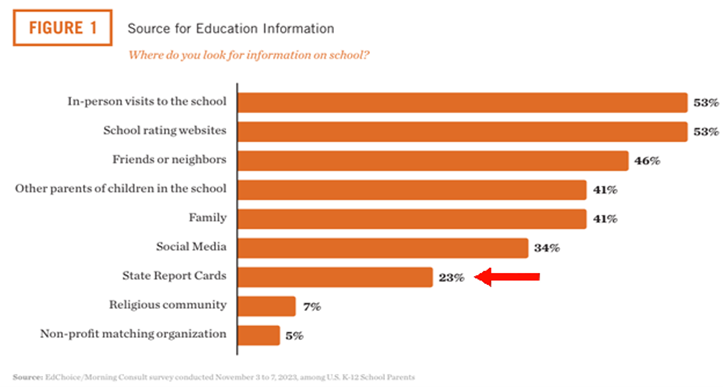
This finding reinforces previous research showing that parents value school reviews (which state report cards do not typically collect) and trust non-profit information sources more than government ratings. While mileage may vary by state, the public’s preference for private rating websites and informal networks strikes me as entirely appropriate given the presence of many state rating systems on a three-dimensional spectrum of convoluted, deceptive and/or more difficult to decipher than Mayan hieroglyphics. Some systems manage to earn a hat-trick on these dimensions (I’m looking directly at you Arizona).
Non-profit organizations run private rating systems, and delightfully have proven much more resilient to district industrial lobbying complex influence than state bureaucracies. If anything, your author can’t help to wonder if those 23% were just being, well, polite.
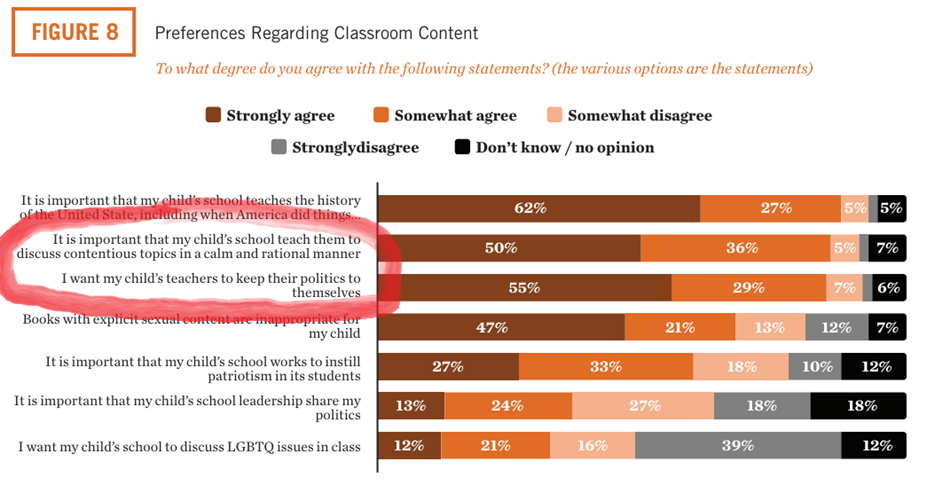
The survey also asked about what parents want from schools in terms of dealing with contentious issues. 86% of parents agreed with wanting students to learn to discuss contentious issues in a calm and rational manner, and 84% agreed with wanting teachers to keep their politics to themselves. Public school teachers posting political manifestos on social media looks bad for business. You don’t forfeit your First Amendment rights because of little things like blue-colored hair and/or a portrait of Pennywise tattooed on your forehead, so you do you. Likewise, however parents don’t forfeit their free association rights

In terms of what parents are looking for from school, it certainly varies (thus the need for pluralism) but it is not terribly hard to decipher.
A new report by EdChoice uses parent surveys to identify what parents want from their schools.
The whole thing is worth reading, but I wanted to highlight two key points that jibe with other studies and underscore important challenges for the education choice movement.
Distance matters
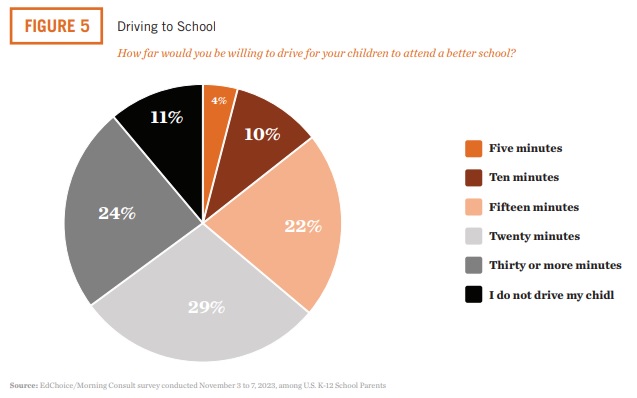
Parents are willing to travel to transport their child to a quality school. But there are limits.
The most common response to EdChoice's surveys was that parents were willing to travel up to 20 minutes to get their child to a school they perceived as high-quality, though some indicated they'd be willing to travel longer.
This underscores a common-sense point that other studies have shown for years: there are practical limits to the school options that families are able to access.
Measures to reduce geographic constraints on families' options, like eliminating residential school assignment, are worth doing. These efforts need to be paired with efforts to provide more flexible forms of school transformation and increase the number of quality options every family can find close to home.
Objective data matters
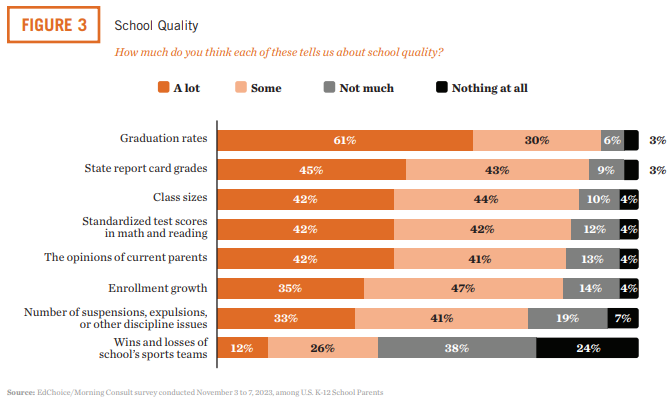
When school systems shift top-down regulatory accountability to accountability driven by family choices, families still want objective information on which schools are effective.
Studies have reached different conclusions about just how much families value test scores, graduation rates, and other quantitative measures of school effectiveness, but the EdChoice results show these indicators matter to families, and that broad point jibes with earlier studies of public-school choice in New Orleans and Washington D.C..
Other research has found that giving parents access to new information, like student growth data, can influence the choices families ultimately make.
This creates a technical challenge for policymakers: How can they ensure families have actionable, comparable data on school effectiveness without imposing mandates that schools take specific assessments that might not align with the unique educational philosophies of diverse learning environments?
The bottom line
If we want to help all families have access to learning options that meet their needs, we're going to need to devise new methods to give families access to objective information about school performance, and to help them overcome logistical barriers to accessing schools of their choice.
Last year, the landmark U.S. Supreme Court decision Carson v. Makin said excluding schools from choice programs solely because they teach religion violates the First Amendment’s free exercise clause.
The ruling delivered a definitive resolution to decades of legal battles. It dismantled one of the major barriers private school choice programs have faced in state constitutions: Prohibitions on public funding flowing to religious or “sectarian” schools.
The result is a major shift in the national legal landscape surrounding modern school choice programs. The primary terrain of battle is no longer the federal judiciary, but state and local courts across the country. And school choice supporters are spending less time playing defense, ensuring publicly funded programs that allow students to attend programs of their choice pass constitutional muster. They’re going on offense, targeting the remaining barriers not just to school choice programs, but to education entrepreneurs looking to create new options for students.
Leaders at the forefront of this next generation of legal battles say constant vigilance will remain essential.
“The opposition to parental choice programs will be looking for other avenues to block and interfere with choice programs,” said Shawn Peterson, president of Catholic Education Partners, a national nonprofit organization that advocates for expanded school choice. “In some states, that will certainly mean through the state court route as these courts might be more favorable. I do think, however, that those state courts will have to consider the U.S. Supreme Court’s ruling and what that might mean for eventual appeals.”
That’s one of the arguments attorneys are using against a teachers union-backed lawsuit filed in state court to Alaska’s Correspondence School Allotment Program. The program, which evolved from a 1930s program for rural students, now operates like an education savings account program after the legislature changed the law. ESAs are programs that grant families restricted use accounts to spend on state-approved educational expenses. At issue is the state constitution, which says, “No money shall be paid from public funds for the direct benefit of any religious or other private educational institution.”
Defenders of the program argue that the money goes to families who can choose from a wide variety of options, including programs offered by district schools. Eliminating religious schools from that menu of choices would place the state on a collision course with recent federal precedents.
“If you read the Alaska Constitution in a very broad way to say the Legislature can never give any benefit to families that choose private schools, you are making it so that a group of people who are exercising a fundamental liberty interest that is protected by the U.S. Constitution explicitly in case law can never get benefits from the state in the same way that other groups can, and that’s unconstitutional under the U.S. Constitution,” said Kirby Thomas West, an attorney with Institute for Justice, which is intervening in the case for a group of families who are using the program.
Her employer, which represented families in Carson and an earlier landmark school choice case, Espinoza v. Montana Department of Revenue, recently announced plans to phase out its role in defending the existence of the school choice programs as the challenges of unique state laws shift to those states’ courts.
The nonprofit public interest law firm has joined forces with the advocacy group EdChoice. Institute for Justice leaders say the handoff will free it up to focus on another evolving arena as new state laws allow entrepreneurs to start microschools and other non-traditional forms of education.
“We are seeing the fruits of our labor,” said Michael Bindas, a senior attorney at Institute for Justice who argued Carson v. Makin before the U.S. Supreme Court. He said the firm’s goal when it began in 1991 was to settle the First Amendment issues that opponents were using to quash school choice programs in their states. Meeting those goals helped clear the way for a wave of school choice programs across the country.
Those programs are aiding the growth of new programs that challenge prevailing norms in schooling, and risk inviting wrath of hostile regulators.
“Government does what government does when it’s faced with this type of innovation,” Bindas said. “It either tries to apply old regulations to these new kinds of models, regulations that don’t necessarily fit or adopts new regulations that stifle the innovations that parents and entrepreneurs are engaged in.”
Bindas said the new legal frontier of education regulations fits well with Institute for Justice, which has a long history of defending property rights and economic liberty. He said the issues are varied, which makes the new focus exciting.
“These issues come in all shapes and sizes,” he said. “These are issues that IJ has long litigated. We bring our expertise and deep experience to bear on barriers and new burdens that entrepreneurs are facing.”
That’s welcome news to Don Soifer, CEO of the National Microschooling Center. The nonprofit was founded as a resource to support the model, which took off during the pandemic and now serves between 1 and 2 million students.
Soifer hears stories constantly from the founders of small learning communities about their struggles with local officials trying to enforce regulations that were created years ago to apply to other uses. Some governments classify them as day care centers subject to the state’s child welfare agency.
Others require them to apply for special land use exceptions. One founder attending a Harvard University school choice conference mentioned that one regulation required three restrooms for a program serving only 10 kids.
“Today's American microschooling movement is very different than the schools of choice that precede it,” Soifer said. “Small learning environments can be designed and operated around the specific needs of individual learners and families. Regulatory frameworks need to continue to adapt to these exciting new opportunities.”
The school choice movement has entered a new era.
A clear signal of that came today with the announcement that Institute for Justice, the national public interest law firm that successfully argued the 2022 landmark U.S. Supreme Court case establishing parental freedom in state school choice programs, is partnering with the national research nonprofit EdChoice to defend future legal challenges to school choice programs.
The organizations will join forces to provide legislative counseling and legal defense of choice under the joint banner of the Partnership for Educational Choice, with the newly founded EdChoice Legal Advocates eventually taking over those responsibilities from IJ, according to a news release.
“IJ and EdChoice have worked together for decades to pass, promote and defend educational choice programs and we are excited about our new partnership to ensure vigorous defense of state programs throughout the country,” IJ President and Chief Counsel Scott Bullock said in a statement. “IJ has accomplished what it set out to do three decades ago: establish the constitutionality of educational choice programs and, in turn, make it possible for millions of families across the country to benefit from the opportunity that those programs provide.”
The phased handoff of all choice program defense to EdChoice will allow IJ to focus on barriers to forms of education choice such as microschools, homeschool co-ops and other innovative programs that have emerged as the result of newly adopted education savings account programs. Entrepreneurs seeking to establish these non-traditional learning environments are often stifled by government-imposed land use and zoning regulations, as well as building codes criticized as outdated and discriminatory.
For example, a Florida law passed in 2022 reined in local government rules that blocked new charter schools. But the law didn’t protect private schools. The exclusion kept a South Florida Jewish day school from opening a few weeks before classes were set to begin, sending families scrambling for options.
IJ leaders say that while they have met the goal set at the organization’s founding in 1991 of being the premier lawyers for the education choice movement and establishing the federal constitutionality of ed choice programs, legal battles continue in state courts. That’s where EdChoice, with its long history of working in statehouses, comes in.
“To realize Milton and Rose Friedman’s vision of universal choice, we must not merely create educational freedom programs, but also ensure they withstand legal challenge in state courts,” EdChoice President and CEO Robert Enlow said in a statement. “Just as we anticipate a need to help implement school choice, we also anticipate an increased need to represent parents and defend these statutes across the country. By partnering with IJ to launch EdChoice Legal Advocates, we will safeguard the Friedmans’ legacy and preserve choice programs for families.”
EdChoice has tapped Tom Fisher, former solicitor general of the state of Indiana, to lead the effort. Fisher has argued five times at the U.S. Supreme Court and many more in the Supreme Court of Indiana, including in Meredith v. Pence, in which, along with IJ, he successfully defended the state’s Opportunity Scholarship Program.
IJ senior attorney Michael Bindas, who leads IJ’s educational choice practice and argued the landmark Carson v. Makin case at the Supreme Court, called the partnership a “force multiplier” for the education freedom movement and will ensure that state-adopted programs will be robustly defended while at the same time, barriers to innovation are vigorously challenged.
“Every child deserves the education that will work best for her, and this partnership will bring us closer to making that a reality,” he said.
EdChoice is out with its latest Schooling in America Survey, one of the most comprehensive snapshots of what Americans think of their schools.
It's packed with interesting data points to dig into. Here are three that caught my eye.
1. Parents appear less pessimistic than the public about the state of schools
This trend shows up in a variety of different surveys about public sentiment in education. Public schools have not been immune to the declining public sentiment toward a wide variety of institutions.
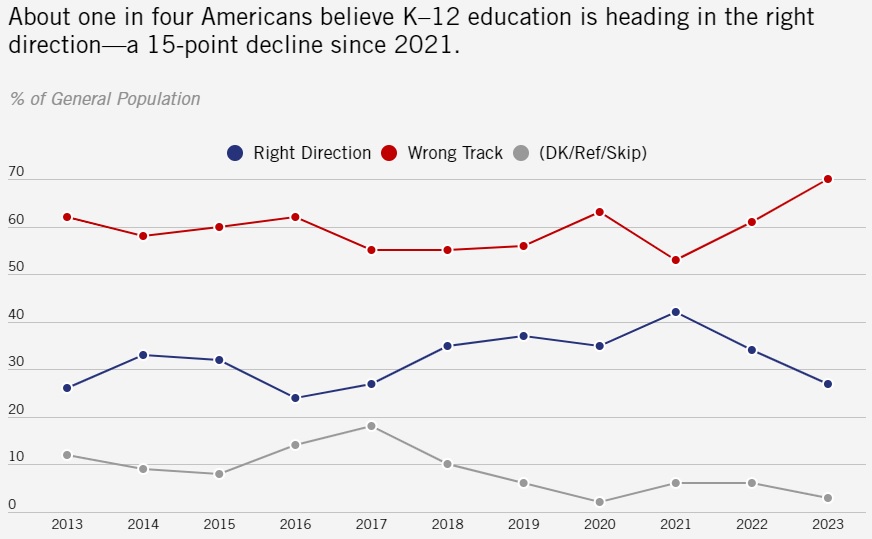
Parents with children attending school also take a dim view, but their pessimism is less pronounced (and not intensifying as rapidly).
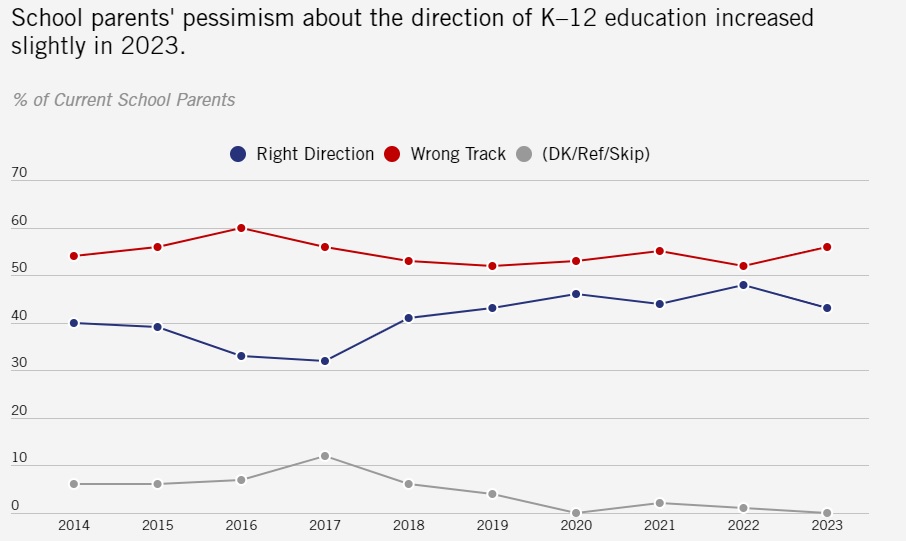
2. Parents choose different learning options for different reasons.
The survey asks parents with children in different learning arrangements what they value. The results aren't necessarily surprising, but they underscore the fact that families select their children's learning arrangements for different reasons.
Private and charter school parents place more value on academic quality than parents who chose other learning options. Homeschoolers place the most value on individualized learning. Parents sending their children to district-run public schools place greater value on access to a learning environment close to where they live or work.
In other words, parents appear to be opting into learning environments that align with their priorities.
One striking trend, explored in greater depth by EdChoice's research director, Mike McShane, is the fact that homeschoolers appear to prioritize safety and fear school violence more than other parents.
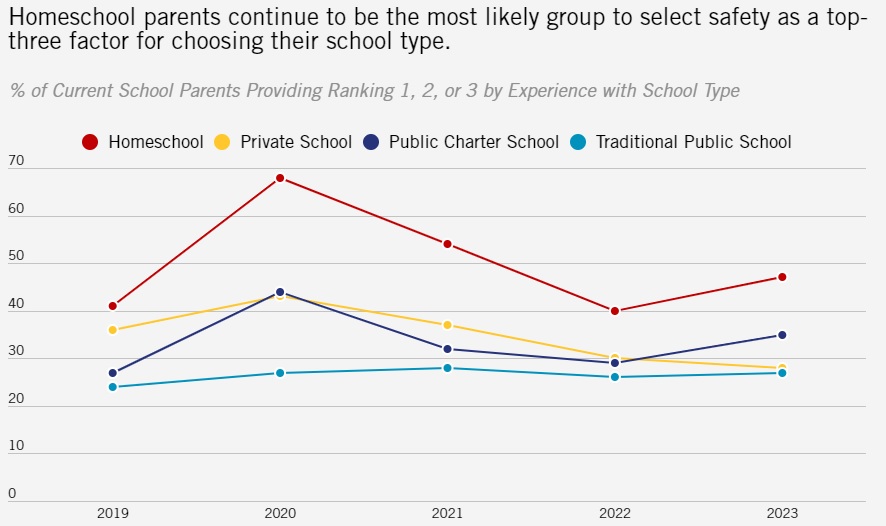
3. Parents' preferences are shifting, slowly but surely
EdChoice's surveys have often shown that parents prefer private schools to other learning options and that they hold their local private schools in higher esteem than district or charter public schools.
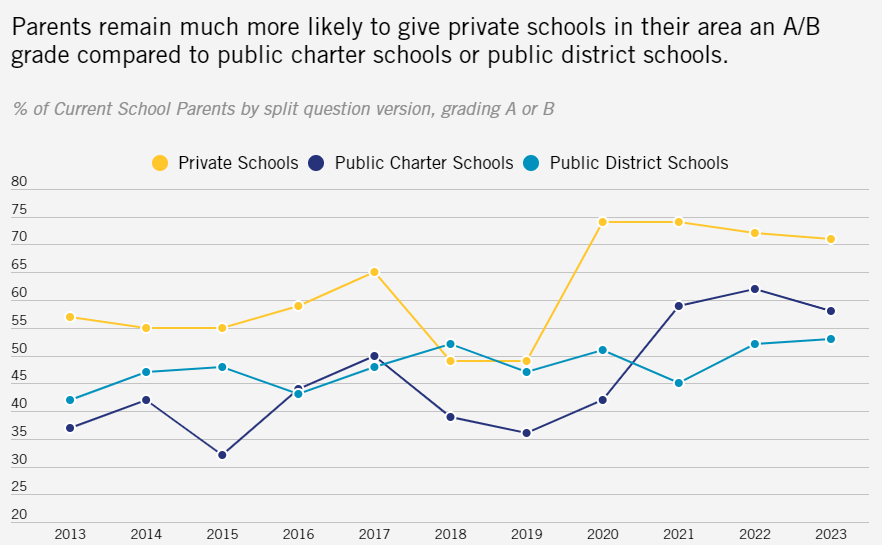
At the same time, private schools' status as most parents' first choice has slipped below district-run public schools. Indeed, over the past decade, the percentage of parents who rate private schools as their first choice has dipped by double-digits. The percentage favoring charter and district-run public schools has crept upward. And the percentage who say they favor homeschooling, while still low overall, at 14 percent, has doubled since 2013.
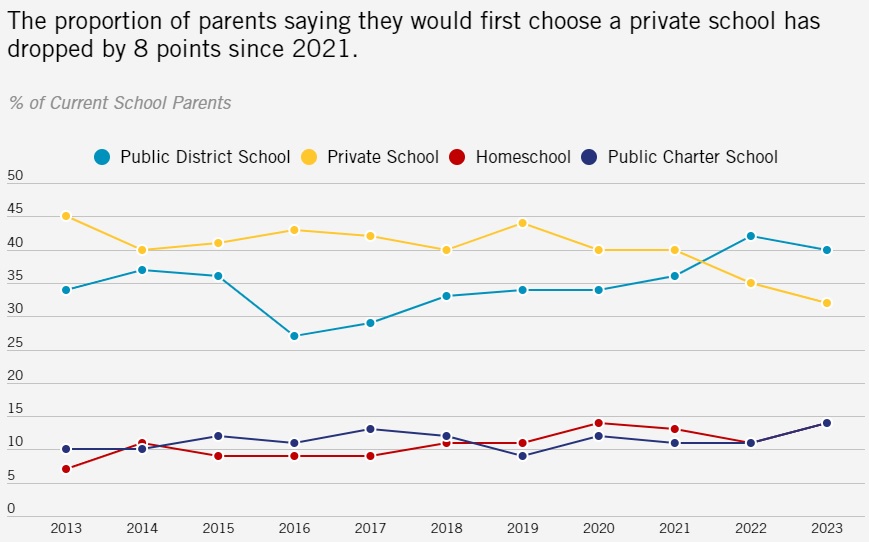
Short-term shifts in public opinion can grab fast headlines but carry little significance. The trends that matter are those, like the gradually improving public sentiment toward homeschooling, that hold over longer stretches of time.
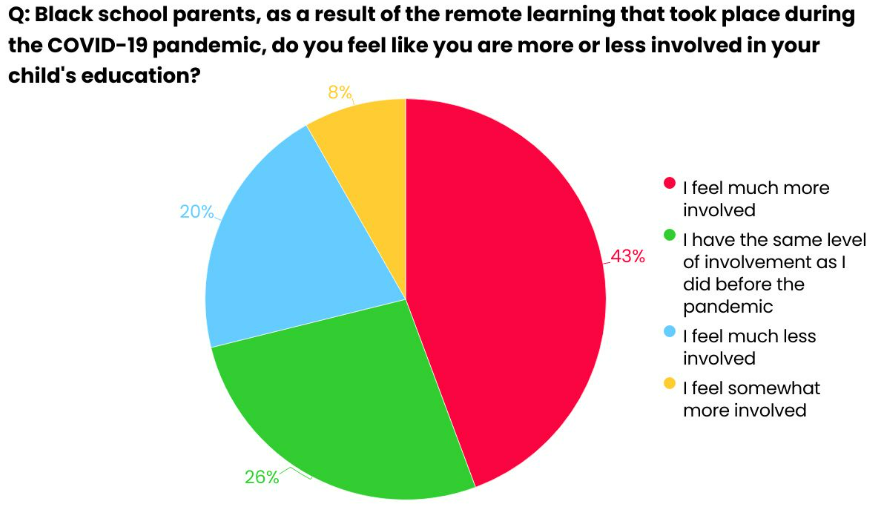 Editor’s note: This analysis appeared Monday on the74million.org.
Editor’s note: This analysis appeared Monday on the74million.org.
Black parents say they play a much more active role in their children’s education than they did before the pandemic, according to a new poll released this month. Large majorities look favorably on policies like private school vouchers and education savings accounts, and comparatively few want the K-12 experience to remain the same.
The results come from a survey of African American parents of school-aged children conducted by the research and polling company Morning Consult. Its findings, while capturing only a moment in time, may reflect educational preferences that have shifted significantly away from traditional public schools in the COVID era.
Morning Consult’s survey was administered to roughly 1,300 respondents across January and February on behalf of EdChoice, an Indianapolis-based advocacy group that backs school choice. During the pandemic, the organization has maintained tracking polls of parents and teachers on general perceptions of K–12 education. Black adults, including parents, have been included both in those ongoing efforts and in separate surveys as districts adjusted to the demands of remote instruction and virus mitigation.
Overall, 57% of respondents said they supported education savings accounts — a financial vehicle that offers families money to spend on educational costs of their choosing — even without being provided a description of their function. Even higher proportions supported school vouchers (62%), open enrollment of public schools (66%), and charter schools (68%).
Paul DiPerna, EdChoice’s vice president of research and innovation, said he found it notable that families’ attitudes toward such policies have remained “fairly stable” even as the circumstances surrounding schools have changed dramatically. In a similar poll conducted in the fall of 2021, for example, two-thirds of African American parents said that COVID had made them more open to the idea of homeschooling; 65% said they were supportive of homeschooling today.
“At the time [of the previous poll], the pandemic looked a lot different for parents and schools,” DiPerna said, invoking the Omicron wave that closed or severely disrupted schools in early 2022. “But some of these levels of support are still high for other modes of learning besides the traditional district school.”
To continue reading, click here.
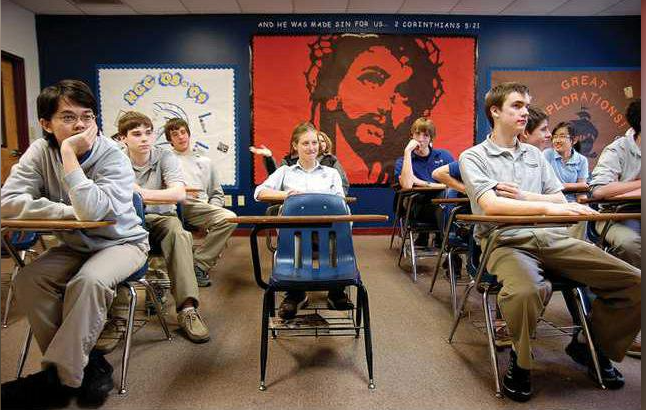
North Georgia Christian Academy in Ellijay, Georgia, is one of 855 private schools in the state serving more than 158,000 students. Established in 2003, North Georgia Christian is a top rated, accredited, independent school committed to helping children find God’s purpose for their lives.
Editor’s note: This commentary from McShane, director of national research for EdChoice, appeared Tuesday on the EdChoice website.
As the Georgia Legislature debates a new expansive education savings account program, a familiar cry has arisen from opponents: We cannot possibly send public money to private schools because they are not accountable for it.
Patricia Hugley-Green, a Muscogee County school board member, put voice to this thought when she told WTVM, “That same accountability for testing, that same accountability for having quality-based education, that needs to be also a requirement for private schools.”
Let’s tackle that sentence in two parts. The first implies that Georgia public schools are held accountable for a quality-based education, and the second that Georgia private schools are not. Both are wrong.
With respect to educational quality, it is far from clear that Georgia public schools are in any way held accountable.
If we look at results on the National Assessment for Educational Progress, and we look at the lowest performance category, we see that 41% of Georgia eighth graders scored below basic in math and 31% scored below basic in reading. They could not clear the lowest bar that the exam sets.
And, what’s worse, the trend is moving in the wrong direction. In 2019, only 33% of Georgia eighth graders scored below basic in math and only 28% scored below basic in reading.
What, if anything, has happened to public school leaders as a result of these disturbing levels and trends?
Yes, technically the state of Georgia has an accountability system. It is a complicated, Rube Goldberg-like system that utilizes standardized test scores and several other measures to ostensibly hold schools academically accountable, but little ever comes of the ratings and measurements that they create.
If you want to see it in all of its glory, you can head to the Georgia Department of Education’s website and find the 132-page document it submitted to the Federal Government to comply with the Every Student Succeeds Act that details the state’s program. It has so many provisions and alternative measurements and carveouts to make it next to incomprehensible.
Somehow, it does churn out an identification of the lowest 5% of schools, but are they actually held accountable? Not really.
In fact, getting classified as needing comprehensive or targeted school improvement actually qualifies a school for more support from the state. Now, this might be the right course of action, and these schools could very well benefit from that intervention, but it is a far cry from what people think when they hear the word “accountability.”
As an aside, would those who want to make participating private schools part of the state’s accountability system support the state providing additional resources for private schools that score too low on the state’s standardized tests? Something makes me think they wouldn’t.
So now let’s look at the second part of Ms. Hughley-Green’s statement. Are private schools accountable for a quality-based education?
Private schools live or die based on enrollment. Parents have to make an active choice to send their children there. If the educational quality is low or if the school is wasting money on pointless things, parents are in full view and can leave, especially with the financial support that programs like education savings account provide.
There is no 132-page system with standardized testing and alternative measurements and multi-stage equations. There are just their ears and eyes. They can personally examine the work that their child is doing and judge whether or not it is useful or challenging. They can speak to their child’s teacher or principal and ask questions about the education their child is receiving. And again, they can always leave if they don’t like what they find.
No system of schooling is perfect. It is a tall order to educate hundreds of thousands or millions of students from diverse backgrounds and with diverse needs. There will always be some number of schools that underperform. You cannot micromanage that away.
Ultimately, parents are closest to their children, know their children better than anyone else, and have the strongest incentives to get the best possible education for them. That doesn’t mean that they are perfect. That just means that they’re better.
Safeguards must be put in place as a fall back (and things like regular audits are part of existing education savings account programs in other states and should be part of any program going forward), but they should be designed to support and work with parents and give them the best information they need to make informed decisions.
That is how we hold schools truly accountable.